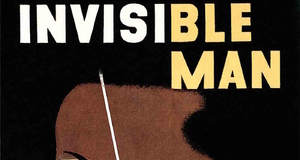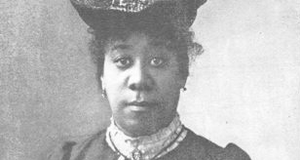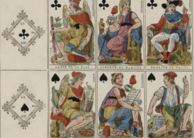Featured Article:The "N-Word:" The Use and Development of the Term "Nigger" in African-American Culture, as Depicted in the Plays of August Wilson
By
2011, Vol. 3 No. 01 | pg. 1/1
KEYWORDS:
August Wilson represents the experiences of African-Americans in each decade of the 20th century in his Pittsburgh Cycle, a collection of ten plays. Throughout this canon, language is used not just as an important form of communication amongst the characters, but also as a means of communicating the African-American experience and its changes across the decades of the 20th century. Because the language of August Wilson’s plays is representative of both African-American culture and American cultural shifts, the plays contain rhetorical and linguistic choices that are specific to the African-American community of each represented decade. Wilson manipulates and alters his characters’ language throughout each decade and across the span of the century. A particularly interesting facet of the language in Wilson’s canon is the language that characters use for either positive or negative effect, depending on the cultural context. This ability of language to shape shift and fulfill a variety of functions is illustrated in the use and evolution of the term “nigger” and to a lesser extent its root word “Negro.” This paper explores the use of the term “nigger” throughout August Wilson’s canon by analyzing how many uses of the term correlates to the representations of the African-American experience across the decades of the 20th century. Specifically, the paper examines the etymology of the term “nigger” and how the evolution of the term’s use and its multiple meanings are represented in Wilson’s work.Before “nigger” can be explored in the context of Wilson’s dramatic works, one must first understand the term’s historical and cultural context. Bill Maxwell, a former professor of English at Kennedy-King College and contributor to the St. Petersburg Times, notes that “Indeed, ‘nigger’ is the worst of racial slurs, but it also has a complex history and multitudinous uses” (44). The term’s different usages throughout different eras and contexts inform the term’s meaning and weight throughout Wilson’s canon of plays. “Nigger” has held a place in the American lexicon as a “cursed yet bonding epithet,” as Kimberly W. Benston, an assistant professor of English and Afro-American Studies at Yale, describes the term (3). Its origins are associated with its most unpleasant connotations. In Randall L. Kennedy’s article “Who Can Say ‘Nigger’?...And Other Considerations,” the history of “nigger” is explored: Leading etymologists believe that nigger was derived from a Northern English word—‘neger’—that was itself derived from ‘Negro,’ the Spanish word for black” (86). Despite stemming from fairly neutral root words, they were manipulated specifically to provoke and hurt. Kennedy summarizes the speculations of linguist Robin Lakoff, stating that, “nigger became a slur when users of the term became aware that it was a mispronunciation of Negro and decided to continue using the mispronunciation as a signal of contempt—much as individuals sometimes choose to insult others by deliberately mispronouncing their names” (86). It is evident that the epithet “nigger” was not only crafted to be a malicious insult, but was used to such effect early in America’s history and merely continued to be used primarily as such since the term’s invention. The word has evolved to encompass other meanings and uses, despite its offensive connotations and origins. Many African-Americans have reclaimed the term, using it to express positive attributes, such as brotherhood and inclusion. Jane H. Hill, professor of Anthropology and Linguistics at the University of Arizona, explains this idea, writing “usages that in some contexts are grossly racist seem to contain an important parodic potential that can be turned to the antiracist deconstruction of racist categorical essentializing (685). This alternative usage of “nigger” is especially evident in popular hip-hop and rap culture, now widespread in contemporary America. Kennedy elaborates on these alternative uses of “nigger,” quoting four examples noted in Geneva Smitherman’s 1997 book, Talkin’ and Testifyin’: The Language of Black America. It (Nigger) may simply identify black folks as in ‘All the nigguhs in Motor City got rides’ (a sentence she translates as ‘All persons of African descent that live in the city of Detroit have automobiles’). It may express a disapproval of a person’s actions, as in ‘Stop acting like a nigger.’ It may designate a person who is ‘identifying and sharing the values and experienced of black people: ‘James Brown is a ‘shonuff nigger.’ Or, finally, according to Smitherman, it may be a term of personal affectionor endearment, as in ‘He my main nigguh,’ meaning, ‘He’s my best friend’ (Kennedy 89). Although the word is primarily associated with its malicious origins and offensive nature, the context and speaker largely determine both the intended meaning of the term and it’s reception. Additionally, the word’s spelling and pronunciation is altered as the usage and meaning changes both over time and between cultural contexts. “The standard English pejorative label ‘niggers,’ be replacing ‘-ers’ with ‘the black vernacular — az to affirm’ their identity and community ‘in the face of anyone or anything that poses a threat to blackness’” (Campbell qtd. in Young 699). The pronunciation of the term lacking a hard “r” sound at the end tends to indicate less negative implications, particularly within the African-American community. The first two plays of the canon, Gen of the Ocean and Joe Turner’s Come and Gone represent the decades of the 1900s and 1910s, respectively, and both utilize the term “nigger” in similar ways. In Gem of the Ocean the term is used only occasionally, particularly by Caesar Wilks, the local constable and self described “boss man” who upholds the law at all costs and has no problem killing a person over a petty crime (Wilson 32). He typically uses the term “nigger” when talking about African-Americans negatively, particularly in relation to the mismanagement of money or stealing. One of the first uses of “nigger” in the play is by Caesar when he says, “Too many niggers breeds trouble” (Wilson 32). His statement refers to the ensuing chaos at the mill after a black man drowned himself to prove he did not steal a bucket of nails. Caesar’s statement obviously portrays a negative view of African-Americans, despite the fact that Caesar Wilks is an African-American himself. Caesar continues to speak about his fellow citizens and fellow African-Americans in his fashion as he discusses the predicament at the mill. Caesar says, “Some of these niggers was better off in slavery…You try and do something nice for niggers and it’ll backfire on you every tune” (Wilson 36). Again, Caesar continues to use “nigger” only when disparagingly discussing other African-Americans. The other characters in Gem of the Ocean refrain from uttering “nigger,” examples of the term’s usage and connotations relative to the first decade of the 20th century are provided solely by Caesar Wilks, thereby imparting a limited understanding of the term’s role in the American vernacular at the time. However, Ceasar Wilks and Solly Two Kings, a former slave from Alabama and friend of Aunt Ester whose nickname references King David and King Soloman, use the term “Negro.” The connotations surrounding the word “Negro” are less clear than the connotations associated with “nigger,” according to its usage in Gem of the Ocean. Solly initially uses the word Negro, saying, “The people say they ain’t going back to work at the mill. They lining up for the funeral down at the church. They lining up all around the block. Look like every Negro in Pittsburgh down there” (Wilson 13). With this usage of the word, there are no negative connotations. It seems that Solly simply employs the word as contemporary speakers may choose the terms “African-Americans” or “black people.” “Negro’s” usage within the text appears neutral. Moreover, Caesar seems to use “Negro” in a similar fashion, as the context of the sentence lacks the negative assertion that his use of “nigger” entails. Caesar reports, “They tried to kill him for selling to a Negro” (Wilson 40). He uses the word, again, to neutrally describe a person he is discussing. Finally, “Negro” is used towards the end of the play when Caesar reads from a paper Aunt Ester has handed to him. Caesar reads, “State of North Carolina, have this day sold and delivered…to Isaac Thatcher…a Negro slave girl named Ester, twelve years five months old…for the sum of $607: the right and title to said girl…” (Wilson 81). In this example, Caesar is reading from a formerly legally recognized bill of sale for Aunt Ester. In this case, “Negro” is used as a neutral descriptor to convey that Aunt Ester is a black woman, rather than attack or degrade Aunt Ester with the purposefully insulting word “nigger." At the beginning of Wilson’s canon of plays, one can already see the linguistic differentiation between “Negro” and “nigger.” Additionally, one can already see “nigger” used in a negative and insulting manner by African-Americans within the African-American community. The middle two plays in the canon, Seven Guitars and Fences represent the decades of the 1940s and 1950s, respectively. These plays differ greatly in the use of the term “nigger.” The term rarely makes an appearance in Seven Guitars, and “Negro” is not used at all. The characters tend to say “black man” or some similar variation. However, its usage does span multiple connotations and meanings. For example, Floyd “Schoolboy” Barton, a black blues musician who struggles both to return to recording in Chicago and to win back his on-again off-again love, Vera, uses the term amongst the company of friends. He particularly uses the term in reference to Red Carter, one of his musician friends, saying, “Look at Red trying to act like he know something. You can’t dance, nigger. You lucky you can walk” (Wilson 54). Although its usage technically refers to the negative idea that Red Carter cannot dance, it is delivered lightheartedly, and none of the characters take offense at its usage. However, Hedley, the man who mutters both genius and insane ramblings and who later confuses the identity of his friend, Floyd, for Buddy Bolden and murders him for his money, deploys “nigger” in a completely different context, giving the word a completely different feel and far more common meaning. Hedley quotes a teacher he once had, whose race he does not specify, saying, “Miss Manning. She say, ‘Listen you little black-as-sin niggers, you never each and none of you amount to nothing, you grow up to cut white man cane and your whole life you never can be nothing with God as my witness, but I will tell you of a black boy who was a man and made the white man run from he blood in the street’” (Wilson 86). This use of the word “nigger” particularly illustrates an instance of malicious use, especially as it is paired with the descriptor “black-as-sin,” insinuating that the children were as evil and threatening as sin because they were born with a darker skin color. Although the use of the term is rare, the few instances exemplify the changing dynamics of the term, while demonstrating that its original use has not been abandoned. In Fences, however, Troy Maxson, a garbage man and former baseball star from the Negro leagues, frequently and exclusively uses the term “nigger.” Fences also contains instances where the meaning and connotations of “nigger” are entirely dependent on the context, as it is no longer solely used as a racial epithet. Troy does use “nigger” in its historically insulting context in many instances, particularly those where his dominance and power are threatened. For example, Troy addresses his son, Cory, a high school senior who makes good grades and is scouted by college football recruiters, with the term: “Nigger, as long as you in my house, you put that sir on the end it when you talk to me” (Wilson 136). Troy feels disrespected by the way Cory addresses him and uses the term to belittle his son, therefore reasserting himself as powerful, as the alpha male. However, Troy’s rhetoric also exemplifies the ability of language to evolve new and even contradictory meanings. Troy demonstrates this as he speaks to and about his best friend of 30 years, Jim Bono, to his compassionate wife of 18 years, Rose: “Hell, I done known him longer than I known you. (Drinks to him.) I love you, nigger” (Wilson 152). This use of the term is unlike any other use in the plays preceding Fences. It illustrates a mutual understanding of the African-American experience and the brotherhood that arises in sharing such an experience. The term is re-purposed to convey a sense of belonging, appreciation, and fraternal love, as opposed to the degradation and hurt that it previously exclusively conveyed. Additionally, use of “Negro” in these mid-century plays is very similar to the use of the word in the first two plays. “Negro” is still used as a neutral descriptor when it is used at all. Seven Guitars does not feature the word at all. As previously noted, the characters generally rely on descriptors such as “black man.” The term “Negro” is used in Fences, but rarely. Troy uses it when bragging about his athletic past to Cory. Troy says, “We had better pitching in the Negro leagues. I hit seven home runs off of Satchel Paige. You can’t get no better than that” (Wilson 133). This use of “Negro” is only particularly notable in that is directly reflects the segregation and the accepted racial rhetoric of the time. The last two plays of the canon, King Hedley II and Radio Golf, are much like the middle two plays in that “nigger” is used very differently and for completely different effects. The language in King Hedley II contains frequent use of the term by many of the characters, unlike many of the previous plays where the use of “nigger” was confined to one, maybe two, characters. However, in Radio Golf the term is used only occasionally, but is employed for maximum effect, generally to ridicule and insult. One of the best examples of the way “nigger” is used in the play is when Sterling Johnson, a house painter who insists on painting Aunt Ester’s house, the building directly blocking the construction of Roosevelt Hicks and Harmond Wilk’s planned apartment and shopping complex (BHR), actually defines the words “Negro” and “nigger.” He does so to berate Roosevelt, a black banker who is manipulated by a white entrepreneur seeking to gain financial control over BHR, for his dealings with white business associates: You know what you are? It took me a while to figure out. You a Negro. White people will get confused and call you a nigger but they don’t know like I know. I know the truth of it. I’m a nigger. Negroes are the worst thing in Gods creation. Niggers got style. Negroes got blindyitis. A dog knows it’s a dog. A cat knows it’s a cat. But a Negro don’t know he’s a Negro. He thinks he’s a white man. It’s Negroes like you who hold us back. (Wilson 76) Sterling creates this distinction specifically to add more weight to the term “nigger,” so that he can use it not only to express his contempt for Roosevelt’s actions, but also as an attempt to trigger guilt in Roosevelt for not acting the way Sterling understands a good member of the African-American community should act. Additionally, this is the only place in the play where “Negro” is uttered, as the term was no longer considered politically correct rhetoric by the 1990s. However, the term “nigger” is used throughout the play to insult and draw negative associations. Roosevelt uses “nigger” in much the same way that Caesar Wilks does in Gem of the Ocean, by using the term as a naming device to separate and insult black people, involving the term particularly in references to thievery. In reply to Sterling’s accusation of being a Negro, Roosevelt says, “You niggers kill me blaming somebody else for your troubles. Get up off your ass…quit stealing…quit using drugs…go to school…get a job…pay your taxes. Oh, I see, you can’t do that ‘cause Roosevelt Hicks is holding you back” (Wilson 77). Roosevelt continues to use “nigger” for its hurtful connotations, and does so to deflect the accusations against him of not living up to his position as a member of the African-American community. The meaning of the term “nigger” in August Wilson’s plays changes over time, and its use is adjusted according to this change. However, throughout the 100 years that the plays represent, the term never fully abandons its segregating and insulting connotations, despite the additional connotations and meanings it acquires throughout the century’s progression. A particular point of interest is how frequently the term is used to portray African-Americans in a negative way seemingly just because they are black. Although many of the insulting uses of the word are connected to allegations of thievery or other stereotypical criminal accusations against black people as a whole, it is almost surprising how frequently members of the African-American community choose to use an insulting term that references the person’s race, a race that they share, rather than a more specific and actually inherently negative aspect about the person in question. This seemingly contradictory use of the term illustrates how deeply the hatred of slavery has infected American culture, even penetrating African-American culture, as the use of terms that express racial malice against those of the same race point to some form of self-hate, undoubtedly brought upon by countless years of abuse, discrimination, and disenfranchisement by white Americans. In many contemporary works by African-American artists such as comedians and musicians particularly those individuals involved in the rap and hip-hop scenes, the term “nigger” is most frequently used as a term that expresses brotherhood and a history of shared experienced. Maxwell notes that in this context, “nigger” elicits the understanding that, “this black man is culturally black and rooted in blackness and the African-American Experience” (44). In August Wilson’s writing, however, the term is occasionally used with his more positive connotation, but more often than not is it used in its original form as a racial epithet, despite the race of the individual uttering the term. This is of particular interest, because although Wilson incorporates the many facets of the word and illustrates its evolution by using differing meanings and contexts, he shows that, despite the passage of time, the word is still used maliciously and still inflicts pain. In a way, the evolution of “nigger” parallels the African-American experience itself. Just as the word has gone through its own evolution, adopting more positive connotations and gaining popular usage, African-Americans have come a long way from the slavery that they once endured and continue to lead the progress away from unequal treatment. Just as the term “nigger” has been reclaimed and re-purposed as a term that denotes inclusion and shared understanding, so African-Americans have reclaimed their race for equality over the course of American history. However, the potential for individuals to continue to use “nigger” in a derogatory and insulting fashion, despite the strides toward equality African-Americans have achieved, demonstrates how many lives are still influences—sometimes even dominated—by the remaining inequalities, discrimination, and racially rooted malice stemming from the era of slavery. The use of the term “nigger” in August Wilson’s canon of plays depicting life for African-Americans in the 20th century honestly reflects the popular usage of the word within the African-American community. This representation displays its newer connotations of brotherhood and the recognition of mutually shared experiences rooted in race. However, the use of “nigger” within a canon of plays that spans a full century also depicts the worst attributes of the word, showing how it has continuously been used as a racial epithet against, and even amongst, African-Americans. ReferencesBenston, Kimberly W. “”I Yam What I Am: Naming and Unnaming in Afro-American Literature.” Black American Literature Forum 16.1 (1982): 3-11. JSTOR. Web. 30 Sept. 2010 Kennedy, Randall L. “Who Can Say “Nigger”?...And Other Considerations.” The Journal of Blacks in Higher Education 26 (Winter, 1999-2000): 86-96. JSTOR. Web. 27 Mar. 2010. Maxwell, Bill. “”Nigger”: The Slur of Slurs.” The Journal of Blacks in Higher Education (1997): 44. JSTOR. Web. 30 Sept. 2010. Wilson, August. Fences. New York: Theatre Communications Group, 2007. Print. Wilson, August. Gem of the Ocean. New York: Theatre Communications Group, 2007. Print. Wilson, August. Joe Turner’s Come and Gone. New York: Theatre Communications Group, 2007. Print. Wilson, August. King Hedley II. New York: Theatre Communications Group, 2007. Print. Wilson, August. Radio Golf. New York: Theatre Communications Group, 2007. Print. Wilson, August. Seven Guitars. New York: Plume, 1997. Print. Young, Vershawn Ashanti. “Your Average Nigga.” College Composition and Communication 55.4 (2004): 693-715. JSTOR. Web. 30 Sept. 2010. Suggested Reading from Inquiries Journal
Inquiries Journal provides undergraduate and graduate students around the world a platform for the wide dissemination of academic work over a range of core disciplines. Representing the work of students from hundreds of institutions around the globe, Inquiries Journal's large database of academic articles is completely free. Learn more | Blog | Submit Latest in Linguistics |


















